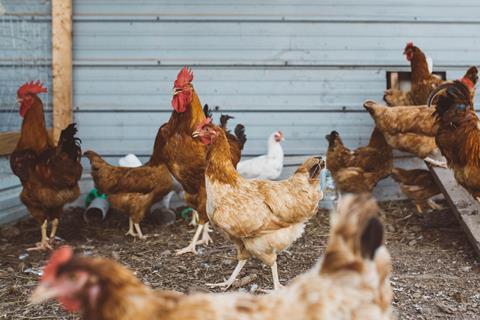Government must step up to the plate on supply chain fairness before more poultry producers call it a day, says Kerry Maxwell of the British Poultry Council (BPC).
The National Farmers’ Union (NFU) recently published research revealing that 15% of poultry producers were “unlikely or unsure” they would still be operating beyond November 2025. This is not just a stark statistic; this is a sobering glimpse into the future of British poultry that, time and time again, BPC members have expressed deep concern over.
Poultry is half the meat the nation eats. Broad commitments from Government suggest there is a keenness to address systemic problems, but to get to the core of ‘fairness,’ we need to explore it from all dimensions.
“Tackling inequality is at the heart of a sustainable food system.”
From commercial fairness to resource efficiency to environmental management, what is being referred to as “artificially low prices” are symbolic of a far greater problem. We are long overdue a conversation about the true cost of a sustainable food system – one that incorporates fairness, security, livelihoods and overall supply chain resilience. That begins by defining what we value from an industry that is feeding the nation.
I’m going to plug BPC’s 2024 and Beyond report again, because this is exactly what we set out to do. At a time when we should be championing our farmers and producers, NFU’s data is a wake-up call for swift and decisive action to secure the future of British food and farming.

The long and short of it is our producers need to maintain the excellent standards that define British poultry meat in the face of squeezes and massive financial pressure. Therefore, we need an economically secure environment that unlocks investment in service of setting out a vision for a system that feeds people, tackles inequalities with quality and affordable food and promotes a liveable climate for all. If we get that right, the win is a society that doesn’t waste potential, from human to economic. Tackling inequality is at the heart of a sustainable food system. Poultry serves that purpose; businesses must be given the confidence to increase investment to make that happen.
Equally, we have a Government that emphasises the importance of thriving domestic production but has created an environment for it to do anything but thrive. We all know the most reliable source of food is what we produce at home. If we want more of it, the only rules should be that it is safe, affordable and nutritious, and the systems producing it as low impact as possible.
This is criteria not entirely unfamiliar to our industry; calls for clear self-sufficiency targets are not a new idea. But in pursuit of fairness in the supply chain that involves the equitable distribution of opportunity, resource and benefit, this is our chance to set targets aligning with these principles. We not only enhance our food security with them, but we foster the viability of domestic production and set it up to thrive, with the well-being of people and planet in mind.
This is our opportunity to turn this stark figure into a rallying point for a renewed commitment to self-sufficiency and a fair, sustainable supply chain, ensuring that the story of British poultry production remains one of national success than a chapter of decline. The fact this is perhaps the hardest time for Government to confront this problem is precisely why they should.




















